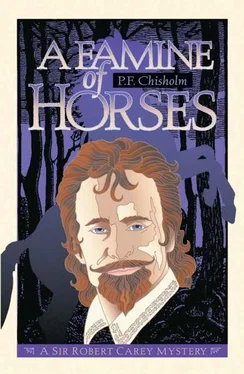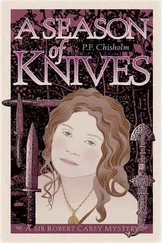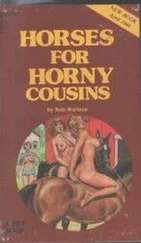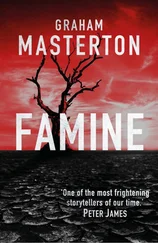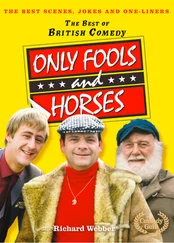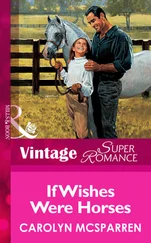P. Chisholm - A Famine of Horses
Здесь есть возможность читать онлайн «P. Chisholm - A Famine of Horses» весь текст электронной книги совершенно бесплатно (целиком полную версию без сокращений). В некоторых случаях можно слушать аудио, скачать через торрент в формате fb2 и присутствует краткое содержание. Год выпуска: 2012, ISBN: 2012, Издательство: Poisoned Pen Press, Жанр: Исторический детектив, на английском языке. Описание произведения, (предисловие) а так же отзывы посетителей доступны на портале библиотеки ЛибКат.
- Название:A Famine of Horses
- Автор:
- Издательство:Poisoned Pen Press
- Жанр:
- Год:2012
- ISBN:9781615954056
- Рейтинг книги:4 / 5. Голосов: 1
-
Избранное:Добавить в избранное
- Отзывы:
-
Ваша оценка:
- 80
- 1
- 2
- 3
- 4
- 5
A Famine of Horses: краткое содержание, описание и аннотация
Предлагаем к чтению аннотацию, описание, краткое содержание или предисловие (зависит от того, что написал сам автор книги «A Famine of Horses»). Если вы не нашли необходимую информацию о книге — напишите в комментариях, мы постараемся отыскать её.
A Famine of Horses — читать онлайн бесплатно полную книгу (весь текст) целиком
Ниже представлен текст книги, разбитый по страницам. Система сохранения места последней прочитанной страницы, позволяет с удобством читать онлайн бесплатно книгу «A Famine of Horses», без необходимости каждый раз заново искать на чём Вы остановились. Поставьте закладку, и сможете в любой момент перейти на страницу, на которой закончили чтение.
Интервал:
Закладка:
P. F. Chisholm
A Famine of Horses
Introduction
Anyone who has read any history at all about the reign of Queen Elizabeth I has heard of at least one of Sir Robert Carey’s exploits-he was the man who rode 400 miles in two days from London to Edinburgh to tell King James of Scotland that Elizabeth was dead and that he was finally King of England. Carey’s affectionate and vivid description of the Queen in her last days is often quoted from his memoirs.
However, I first met Sir Robert Carey by name in the pages of George MacDonald Fraser’s marvellous history of the Anglo-Scottish borders, “The Steel Bonnets.” GMF quoted Carey’s description of the tricky situation he got himself into when he had just come to the Border as Deputy Warden, while chasing some men who had killed a churchman in Scotland.
“…about two o’clock in the morning I took horse in Carlisle, and not above twenty-five in my company, thinking to surprise the house on a sudden. Before I could surround the house, the two Scots were gotten into the strong tower, and I might see a boy riding from the house as fast as his horse would carry him, I little suspecting what it meant: but Thomas Carleton… told me that if I did not…prevent it, both myself and all my company would be either slain or taken prisoners.”
Perhaps you need to have read as much turgid 16th century prose as I have to realise how marvellously fresh and frank this is, quite apart from it being a cracking tale involving a siege, a standoff, and some extremely fast talking by Carey. And it really happened, nobody made it up; references in the Calendar of Border Papers suggest that Carey made his name with his handling of the incident.
It’s all the more surprising then that Robert Carey was the youngest son of Henry Carey, Lord Hunsdon. Hunsdon was Queen Elizabeth’s cousin because Ann Boleyn’s older sister Mary was his mother. He was also probably Elizabeth’s half-brother through Henry VIII, whose official mistress Mary Boleyn was before the King clapped eyes on young Ann. (I have to say that one of the attractions of history to me is the glorious soap opera plots it contains.)
The nondescript William Carey who had supplied the family name by marrying the ex-official mistress, quite clearly did not supply the family genes. Lord Hunsdon was very much Henry VIII’s son-he was also, incidentally, Elizabeth’s Lord Chamberlain and patron to one William Shakespeare.
Robert Carey was (probably) born in 1560, given the normal education of a gentleman from which he says he did not much benefit, went to France for polishing in his teens, and then served at Court for ten years as a well-connected but landless sprig of the aristocracy might be expected to do.
Then in 1592 something made him decide to switch to full-time soldiering. Perhaps he was bored. Perhaps the moneylenders were getting impatient.
Perhaps he had personal reasons for wanting to be in the north. At any rate, Carey accepted the offer from his brother-in-law, Lord Scrope, Warden of the English West March, to be his Deputy Warden.
This was irresistable to me. In anachronistic terms, here was this fancy-dressing, fancy-talking Court dude turning up in England’s Wild West. The Anglo-Scottish Border at that time made Dodge City look like a health farm. It was the most chaotic part of the kingdom and was full of cattle-rustlers, murderers, arsonists, horse-thieves, kidnappers and general all-purpose outlaws. This was where they invented the word “gang”-or the men “ye gang oot wi’ “-and also the word “blackmail” which then simply meant protection money.
Carey was the Sheriff and Her Majesty’s Marshall rolled into one-of course, I had to give him a pair of pistols or dags, but they only fired one shot at a time. He was expected to enforce the law with a handful of horsemen and very little official co-operation. About the only thing he had going for him was that he could hang men on his own authority if he caught them raiding-something he seems to have done remarkably rarely considering the rough justice normally meted out on the feud-happy Border.
Even more fascinating, he seems to have done extremely well-and here I rely on reports and letters written by men who hated his guts. By 1603 he had spent ten years on the Border in various capacities, and got it quiet enough so he could take a trip down to London to see how his cousin the Queen was doing. Unfortunately for him, Carey also seems to have been too busy doing his job to rake in the cash the way most Elizabethan office-holders did.
So when Carey made his famous ride, he was a man of 42 with a wife and three kids, no assets or resources, facing immediate redundancy and possible bankruptcy. As he puts it himself with disarming honesty, “I could not but think in what a wretched estate I should be left… I did assure myself it was neither unjust nor unhonest for me to do for myself…. Hereupon I wrote to the King of Scots.”
What Carey did after his ride will have to wait for future books-or you could read his memoirs, of course. As GMF says, “Later generations of writers who had never heard of Carey found it necessary to invent him… for he was the living image of the gallant young Elizabethan.”
Based on a few portraits, I think he was quite good-looking-as he had to be to serve at Court at all, since Queen Elizabeth had firm views on the sort of human scenery she wanted around her. As he admits himself, he was a serious fashion victim. Nobody wears a satin doublet AND a sash of pearls unless that’s what they are, which is how he’s peacocking it in one of his portraits. Most remarkable of all, he married for love not money-and was evidently thought very odd for it, since he was perpetually broke.
And that’s it, the original man, an absolute charmer I have lifted practically undiluted from his own writings. The various stories I tell are mostly made up, though all are based on actual incidents in the history of the Borders. About half of the characters (and most of the bad guys) really lived and were often even worse than I have described. As I say in most of the historical talks I give, we like to think we’re terribly violent and dangerous people but really we’re a bunch of wusses. The murder rate has dropped to a tenth of what it was in the Middle Ages-and they didn’t have automatic pistols. It took real work to kill somebody then.
And yes, I’m afraid I have fallen, hook, line and sinker, for the elegant and charming Sir Robert Carey. I hope you do too.
Sunday, 18th June 1592, noon
Henry Dodd let the water drip off the end of his nose as he stared at a trail in the long sodden grasses. It was simple enough: two horses, both burdened, though from a long slide mark by a little hump he thought the bigger of the two was carrying a pack rather than being ridden by a man who could have avoided it. The prints kept close enough for the one to be leading the other.
He looked up and squinted at the low hills north of the border where the Picts’ Wall ran. They melted into the grey sky so it seemed there was no difference between the earth and the cloud and a lesser man might have made comparisons between them and the area of moss and waste between, where the purely theoretical change between England and Scotland took place.
Sergeant Henry Dodd, however, had no time for such fancyings. He was mortally certain that the two men, or possibly one and a packhorse, had been where they had no business to be, and he wanted to know why.
Blinking intently at the traces, he turned his horse and let her find her own path amongst tussocks and rabbit holes, following the trail before it was washed into mud.
Behind him his six patrolmen muttered into their chests and followed in sodden misery. They had been on their way home to Carlisle from a dull inspection of the fords on the River Sark when the Sergeant had seen the trail and taken it into his head to follow it. By the time they got to the guardroom, Lowther’s men would have taken the best beer and the least stale loaves and if there was cheese or meat left, it would be a wonder.
Читать дальшеИнтервал:
Закладка:
Похожие книги на «A Famine of Horses»
Представляем Вашему вниманию похожие книги на «A Famine of Horses» списком для выбора. Мы отобрали схожую по названию и смыслу литературу в надежде предоставить читателям больше вариантов отыскать новые, интересные, ещё непрочитанные произведения.
Обсуждение, отзывы о книге «A Famine of Horses» и просто собственные мнения читателей. Оставьте ваши комментарии, напишите, что Вы думаете о произведении, его смысле или главных героях. Укажите что конкретно понравилось, а что нет, и почему Вы так считаете.
